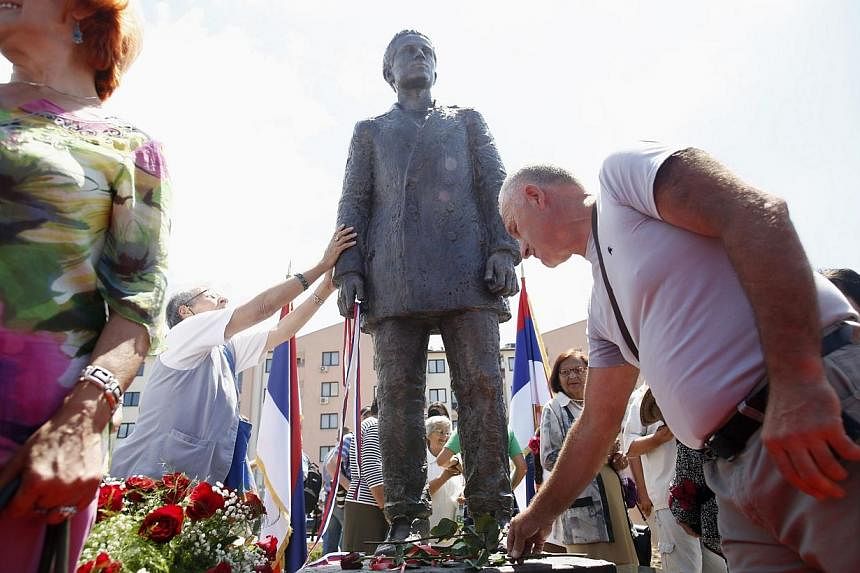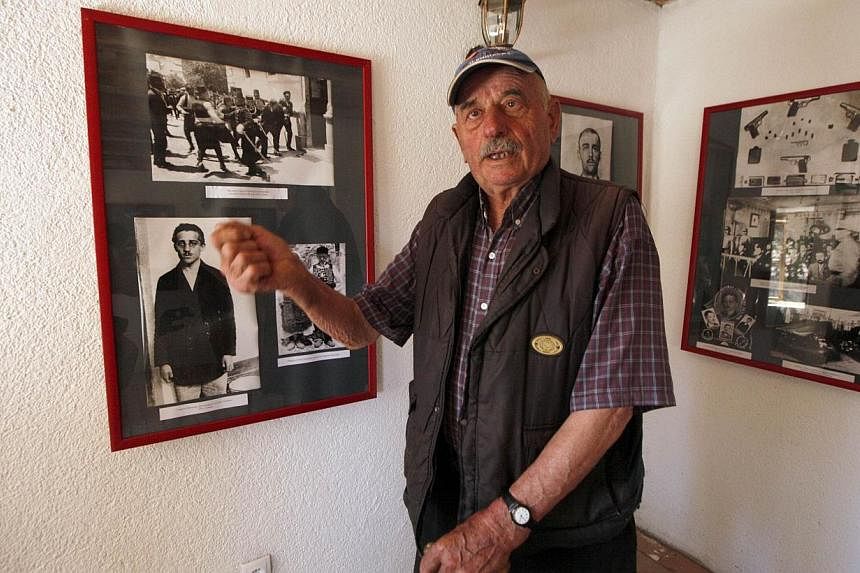SARAJEVO (AFP) - Gavrilo Princip is known around the world as the man whose actions sparked World War I. But for many of his fellow Bosnian Serb countrymen, he is a hero, not a villain.
In a ceremony to mark the centenary of the war on Friday, Bosnian Serbs unveiled a two-metre bronze statue of Princip, whose assassination of Austrian Archduke Franz Ferdinand on June 28, 2014, set world powers on a devastating collision course.
Several hundred people attended the unveiling in Eastern Sarajevo to honour a man viewed by Bosnia Serbs as a nationalist hero who fought for the freedom of Slavic countries.
"We have been inspired by Gavrilo Princip... We have, and we will always fight for freedom," said Mr Nebojsa Radmanovic, a Serb member of Bosnia's joint presidency.
Wildly differing interpretations of 20th-century history endure in a region scarred by the conflicts that marked the break-up of Yugoslavia in the 1990s.
And the figure of the archduke's assassin is particularly divisive.
Bosnian Serb politicians, as well as officials from neighbouring Serbia, have refused to take part in EU-sponsored centennial ceremonies elsewhere in the capital Sarajevo, claiming other ceremonies are an attempt to blame the Serbs for inciting World War I.
"This is our message to those marking the centenary of the Great War without us, and without mentioning Princip," Mr Radmanovic said.
"We are proud of our history, our fight for freedom and of everything our ancestors have done for us to defend our (national) identity," said Bosnian Serb nationalist President Milorad Dodik at the ceremony.
He also warned that the "peoples of Bosnia have never been together and they are still divided".
Since the end of the 1992-1995 war, Bosnia has been divided in two semi-autonomous entities, Bosnian Serb Republika Srpska and the Muslim-Croat Federation.
Although the two areas are connected with weak central institutions, mistrust and tensions between the three ethnic communities have prevailed in the former Yugoslav republic.






